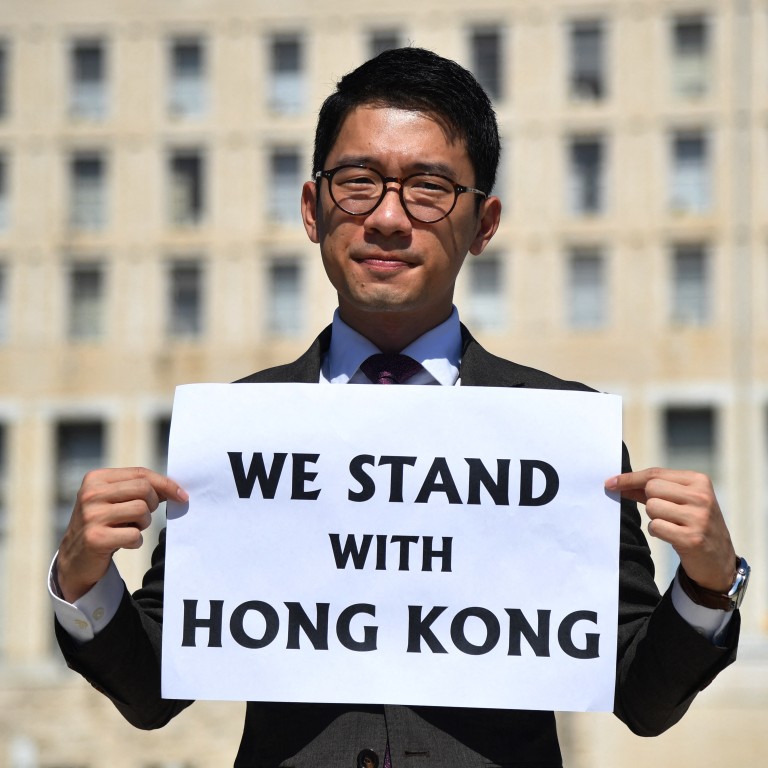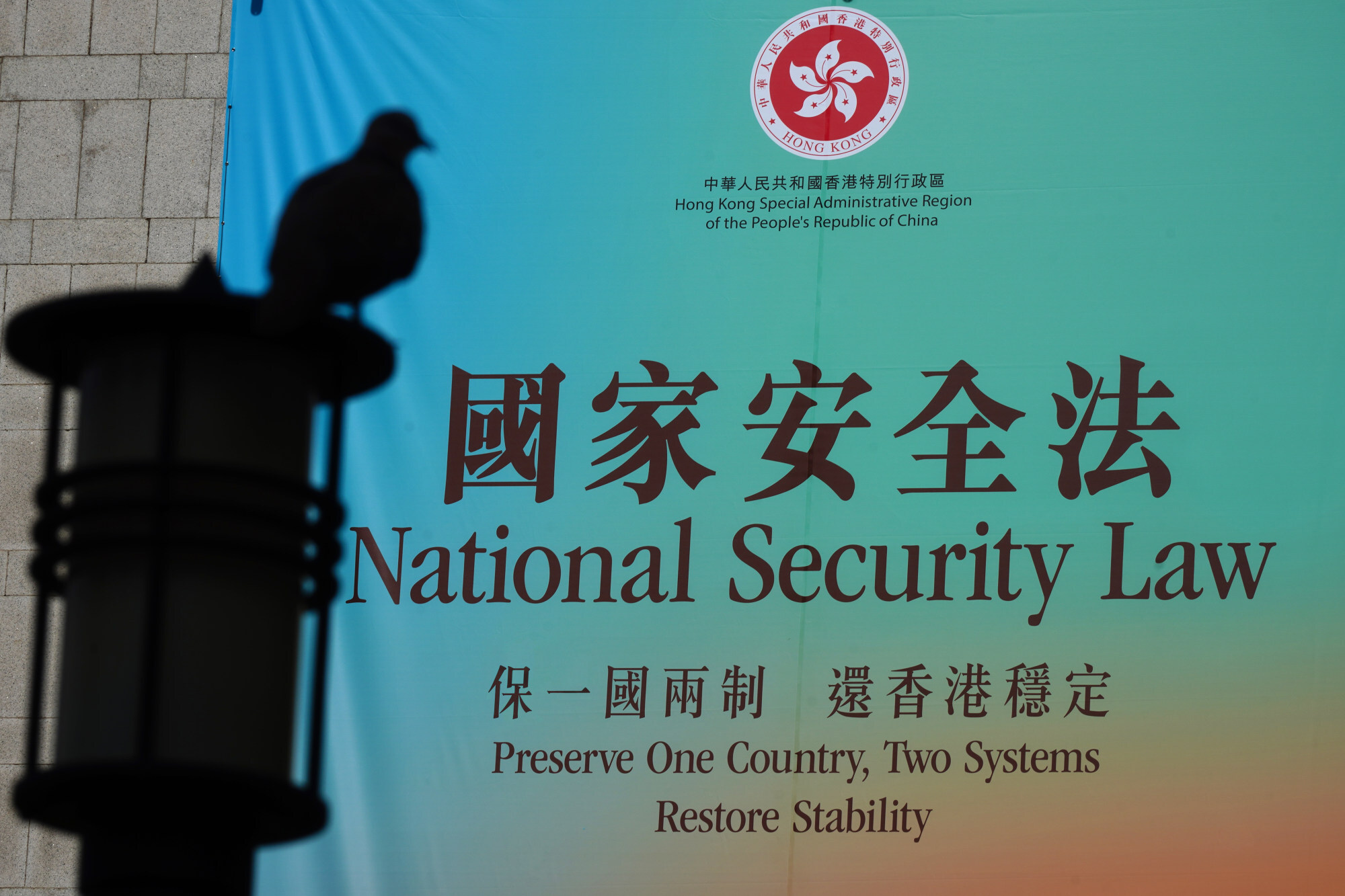
Beijing accuses Britain of ‘sheltering suspects’ by granting asylum to fugitive Hong Kong activist Nathan Law
- Foreign ministry calls on London to withdraw its asylum offer to the ex-lawmaker, describing the decision as ‘gross interference’ in Hong Kong’s judicial system
- Law said earlier the Home Office had granted him refugee status following a four-month application process
Beijing accused Britain on Thursday of sheltering wanted suspects by granting political asylum to Hong Kong fugitive and former opposition lawmaker Nathan Law Kwun-chung, and demanded that London reverse the decision.
Law revealed his refugee status in Britain a day earlier, some nine months after fleeing for the country ahead of last summer’s introduction of the national security law in Hong Kong.
Hong Kong activist Nathan Law reveals he has applied for political asylum in Britain
“If the UK openly endorses those calling for ‘Hong Kong independence’ and shelters wanted suspects, it will constitute gross interference in Hong Kong’s judicial affairs and a breach of international law and basic norms governing international relations,” China’s Ministry of Foreign Affairs spokesman Zhao Lijian told a daily press conference.
Law said on Wednesday night that the British Home Office had classified him as a refugee under the United Nations’ Convention Relating to the Status of Refugees, and offered him asylum.
Zhao said Law was a suspect wanted by Hong Kong police and that Beijing firmly opposed the harbouring of criminals by any country, organisation or individual.
“The UK should immediately correct its mistakes and stop interfering in Hong Kong affairs which are China’s domestic affairs,” he added.
Law said his asylum application in Britain involved being interviewed several times over four months. In arguing he was forced to flee persecution in his home city, he pointed to what he called politically motivated lawsuits and the scope of the Beijing-imposed national security law.
“I hope that my case can help the Home Office understand more about the complicated situation in Hong Kong. To free more protesters from Beijing’s authoritarian oppression, the Home Office could consider more comprehensive evidence when coping with Hong Kong cases,” the former student leader wrote on social media.

Law fled Hong Kong in late June last year, days before Beijing imposed the security law, which has been heavily criticised by Britain and other Western nations. London claimed the law constituted a breach of the 1984 Sino-British Joint Declaration, which laid out the terms of the city’s handover in 1997.
Nathan Law says he has warned Pompeo of Beijing ‘meddling’ in city’s coming elections
While police have not made public a list of wanted dissidents, sources have identified Law as one of the people who had fled overseas and were wanted on suspicion of breaking the security law, which bans acts of secession, subversion, terrorism and collusion with foreign forces.
In an earlier newspaper article, Law said: “I decided to flee to where I could speak freely. I am the first former lawmaker in Hong Kong, and the youngest elected in history, to live a life of exile.”

